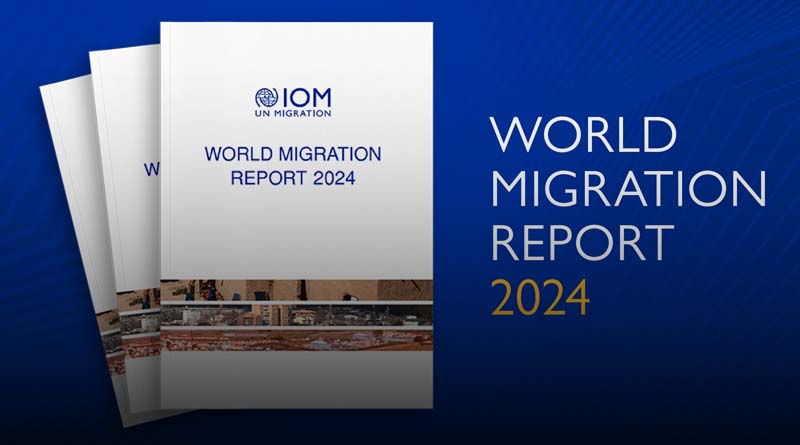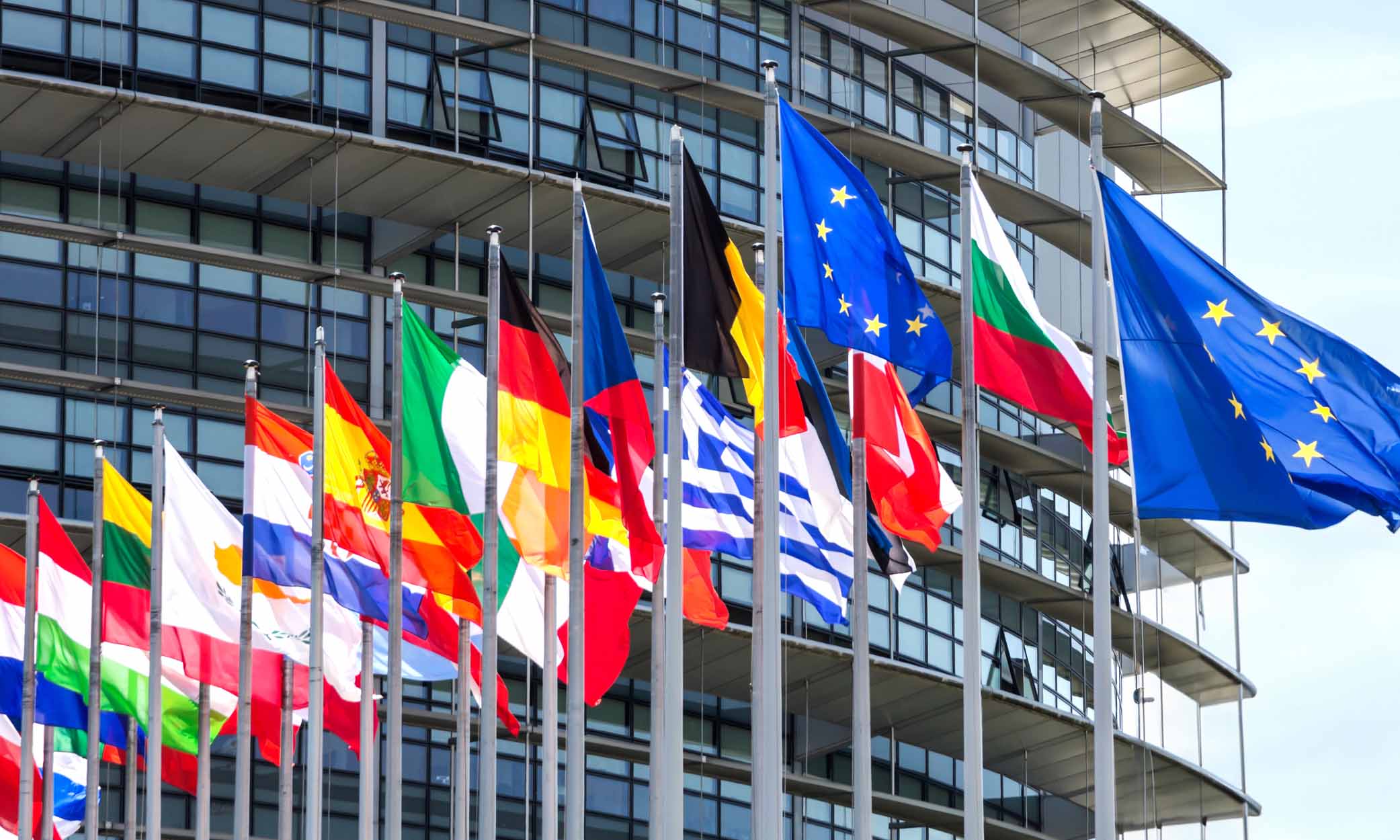Jump to other articles:
News feed Date: 10 May, 2024
World Migration Report 2024 Covers the Latest on Human Mobility

The World Migration Report 2024 is out. A biannual publication, the World Migration Report is put together by the International Organization for Migration (IOM). In this article, we’ll explain the identity of the IOM and the relevance of the report to investment migration.
Introducing the IOM and the World Migration Report 2024
The IOM is affiliated to the United Nations (UN) and shares Switzerland, specifically Geneva, as a main base. It was founded in 1951, principally to address the large number of people displaced during the Second World War. The responsibility that is most germane to our industry is the promotion of global collaboration regarding affairs of movement.
2000 was the year the very first World Migration Report came out. This was intended to be a standalone report, but a series has developed. IOM launched the latest version in Dhaka, Bangladesh.
There are some parallels between the 2000 publication and the 2024 one. The region with the highest proportion of international migrants remains Oceania. In addition, the UAE, architect of its very own golden visa, is still the country with the highest international migrant proportion.
At the same time, there are noticeable differences between the two reports. In 2000, the IOM estimate for the number of international migrants was 150 million. The 2024 figure, however, is 281 million.
Demystifying Migration
Amy E. Pope is the IOM Director General and she penned a foreword to the World Migration Report 2024 that makes for instructive reading. It reminds us that migration is an age-old phenomenon. For it begins with: “Throughout history, people have migrated in search of better lives, to flee conflict or seek safety, or simply to find new opportunities.”
Before continuing: “It may surprise people that most migration is regular, safe and orderly…” “What captures attention in headlines is just part of the story. Migration is an issue that has been deeply affected by misinformation and politicization, and dominant narratives have strayed far away from balanced, accurate accounts of migration – both its simple truths and its complex situation-specific realities.”
This sort of scaremongering happens in the world of Residency and Citizenship by Investment. Investment migration is a force for good, with investors benefiting from enhanced global mobility, for example, and the countries offering programmes the recipients of an improved GDP that can be used to help fund social projects etc.
Recently, St Lucia Prime Minister Philip J. Pierre accused local media of “fabricating a story about your Prime Minister being taken out of the country on an FBI plane.” This fake news story was generated to attack the St Lucia Citizenship by Investment Programme. “If you can get your roads built without increasing your national debt, you are against that?”, queried Pierre.
Distorting the Numbers
Political parties use migration in their election campaigns. They tend to do so in an inflammatory manner. Figures are inflated for dramatic effect with immigration depicted as something alarming and negative rather than controlled and positive.
Director General Pope concludes the foreword with the following: “The phrase “Knowledge is Power”, was first used by philosophers in the sixteenth century.”
“In this age of instant news, web conspiracies and sophisticated political narratives, it is as relevant as ever. Through this edition of the World Migration Report, we seek to shape the conversation on migration around data, facts and truth – that way, we can tell the whole story.”
A mere 3.6% of the world’s population can be classified as international migrants. It’s a similar story to those who invest in Citizenship or Residency by Investment. If you do so, you’ll join the great minority.

COVID-19 and Mobility
Remember the dark days of the pandemic? When you were restricted when and where you could go anywhere? As the World Migration Report 2024 acknowledges, “COVID-19-related immobility became the “great disrupter” of migration.”
If you visited an airport during the pandemic, you would not have been surprised to see tumbleweed blowing around. Like you’d stumbled onto the set of a Western.
The report reveals that “total air passengers carried dropped by 60 per cent from around 4.5 billion in 2019 to 1.8 billion in 2020” and that “air passenger numbers began to inch up in 2021 as countries relaxed mobility restrictions, and by end of 2022, total passenger figures had risen to more than 3.5 billion.”
Entrepreneurs are always on the move. Both mentally and physically. Elon Musk, for instance, famously lives out of a suitcase, staying at friends’ houses. Even if you prefer to check in to hotels, the effect on business travel during COVID-19 was catastrophic. And these restrictions still linger.
This is where investment migration can help. With a second citizenship or new residency, you can avoid punitive future lockdowns. You can retreat to a Caribbean island, Europe, or the Middle East. You’ll have greater control over your travel plans.

Separated at Birth and Schengen
When you’re born, you become eligible for a passport from your country of birth. The strength of that passport will vary from country to country.
The World Migration Report 2024 describes that “examining the overall quality of life by country, and the ability to migrate in terms of visa access, reveals that availability of migration options is partly related to the lottery of birth and in particular the national passport of the potential migrant.”
Our Passport Index allows you to check the strength of your passport. You can compare and contrast it against passports of other countries. The greater number of visa-free countries a passport allows you to visit; the more powerful it is. So this can help you decide where to invest in another citizenship.
Whether you’re more interested in Residency or Citizenship by Investment, access to the Schengen Zone is key. You can avoid Schengen Area visa delays with an European residency. That’s the beauty of applying for Residency by Investment within the European Union.
The latest World Migration Report emphasizes the importance of Schengen: “The European Union Schengen agreement has seen gradual progress since 1985, with the process of removing “internal border checks between member States taking place at the same time that the external border has been strengthened around the Schengen area.”
“Notwithstanding events (such as the large-scale movement of people into and through the Schengen area in 2015–16 and the COVID-19 pandemic) that exerted considerable pressure on aspects of European Union border, entry and asylum/refugee policies, the Schengen agreement has remained intact, providing mobility opportunities for 400 million European citizens.”
The RIF Trust View on Human Mobility
Mimoun A. Assraoui is our CEO. Like many of RIF Trust’s experienced investment migration staff, he has both personal and professional experience of Residency and Citizenship by Investment. “I’m proud to be an immigrant,” declares Assraoui.
“I was born in Morocco but raised and educated in France,” he shares. “Now, I’m based in the United Arab Emirates, Dubai to be precise. However, I also have Caribbean citizenship by investing in St Lucia.”

How to Enhance Your Global Mobility in 2024
Did you not win at the lottery of birth? Or maybe you’re looking for a Plan B? Either way, don’t delay and contact RIF Trust today to talk you through your investment migration options in greater detail.
World Migration Report 2024 Covers the Latest on Human Mobility
Date: 10 May, 2024
Posted in: News feed
 Back to News
Back to News